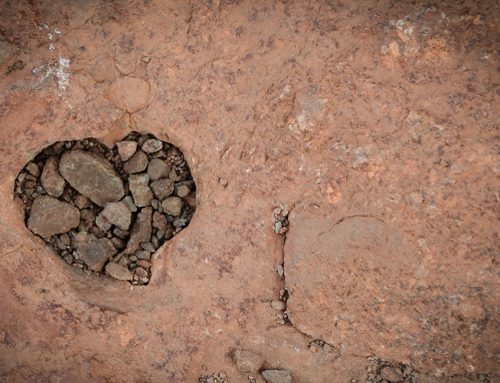
Augustine: “Man is one of your creatures, Lord, and his instinct is to praise you…he wishes to praise you. The thought of you stirs him so deep that he cannot be content unless he praises you, because you made us for yourself and our hearts find no rest until they rest in you.” (Confessions Book 1.1)
John Calvin: “We must therefore constantly recall to our minds this truth, that it can never be well with us except in so far as God is gracious to us, so that the joy we derive from his paternal favor towards us may surpass all the pleasures of the world…if we are satisfied in the enjoyment of God alone, he will liberally bestow upon us all that we desire.” (Commentary on Psalm 37:4)
Matthew Henry: “What is the desire of the heart of a good man? It is this, to know, and love, and to live to God, to please Him and to be pleased in Him.” (Commentary on Psalm 37:4)
John Owen: The Christian is driven by two desires: “First, that God may be glorified; and, second, that the soul itself may be eternally saved. Nor can it give up either of these desires. These desires are inseparable in any enlightened soul, which can never cease desiring them to the highest degree.” (John Owen, Gospel Evidences of Saving Faith (Grand Rapids, MI: Reformation Heritage Books, 2016) 21)
Richard Sibbes: “A Christian is a happy man in his life, but happier in his death, because then he goes to Christ; but the happiest of all in heaven, for then he is with Christ.” (from his sermon “Christ is Best”—Philippians 1:23-24)
The Puritans: “What is the chief end of man? Man’s chief end is to glory God and to enjoy Him forever.” (Shorter Catechism Q.1)
The Dutch Reformers: “How many things are necessary for thee to know, that thou, enjoying this comfort, mayest live and die happily? Three; the first, how great my sins and miseries are; the second, how I may be delivered from all my sins and miseries,; the third, how I shall express my gratitude to God for such deliverance.” (Heidelberg Catechism Q.2)
Jonathan Edwards: “God himself is the great good which [the saints] are brought to the possession and enjoyment of by redemption. He is the highest good, and the sum of all that good which Christ purchased. God is the inheritance of the saints; he is the portion of their souls. God is their wealth and treasure, their food, their life, their dwelling-place, their ornament and [crown], and their everlasting honor and glory. They have none in heaven but God; he is the great good with the redeemed are received to at death, and which they are to rise to at the end of the world. The Lord God is the light of the heavenly Jerusalem; and is the “river of the water of life” that runs, and “the tree of life that grows, in the midst of the paradise of God.” The glorious excellencies and beauty of God will be what will for ever entertain the minds of the saints, and the love of God will be their everlasting feast. The redeemed will indeed enjoy other things; they will enjoy the angels, and will enjoy one another: but that which they shall enjoy in the angels, or each other, or in anything else whatsoever that will yield them delight and happiness, will be what shall be seen of God in them.” (from his sermon “God Glorified in Man’s Dependence”—1 Corinthians 1:29-31)
Charles Spurgeon: “The chief end of man, we believe, in this life and in the next, is to please God his Maker. If any man pleases God, he does that which conduces most to his own temporal and eternal welfare. Man cannot please God without bringing to himself a great amount of happiness.” (from his sermon “Faith” delivered December 14, 1856)
Martyn Lloyd-Jones: “…we read the great statement…‘to me to live is Christ’ (Philippians 1:21). Paul said in essence: ‘This is life; this is the essence of life. Christ is not somebody I remember now and again; he is not somebody whose teaching I am trying painfully to put into practice. He is my life; he dominates my life.’ Paul was a Christ-intoxicated man.” (from his sermon: “Captivated by Him”—John 4:28-29
Charles Bridges: “…what energy for holy devotedness flows from the enjoyment of this our heavenly portion! Thus delighting ourselves in the Lord, he gives us our heart’s desire…All that we are and all that we have are his; cheerfully surrendered as his right, and willingly employed in his work.” (Commentary on Psalm 119:57)
To see the Christian Hedonism of an Experimental Christian, listen to our sermon from 9.1.19 found on our YouTube channel or Sermon page.





